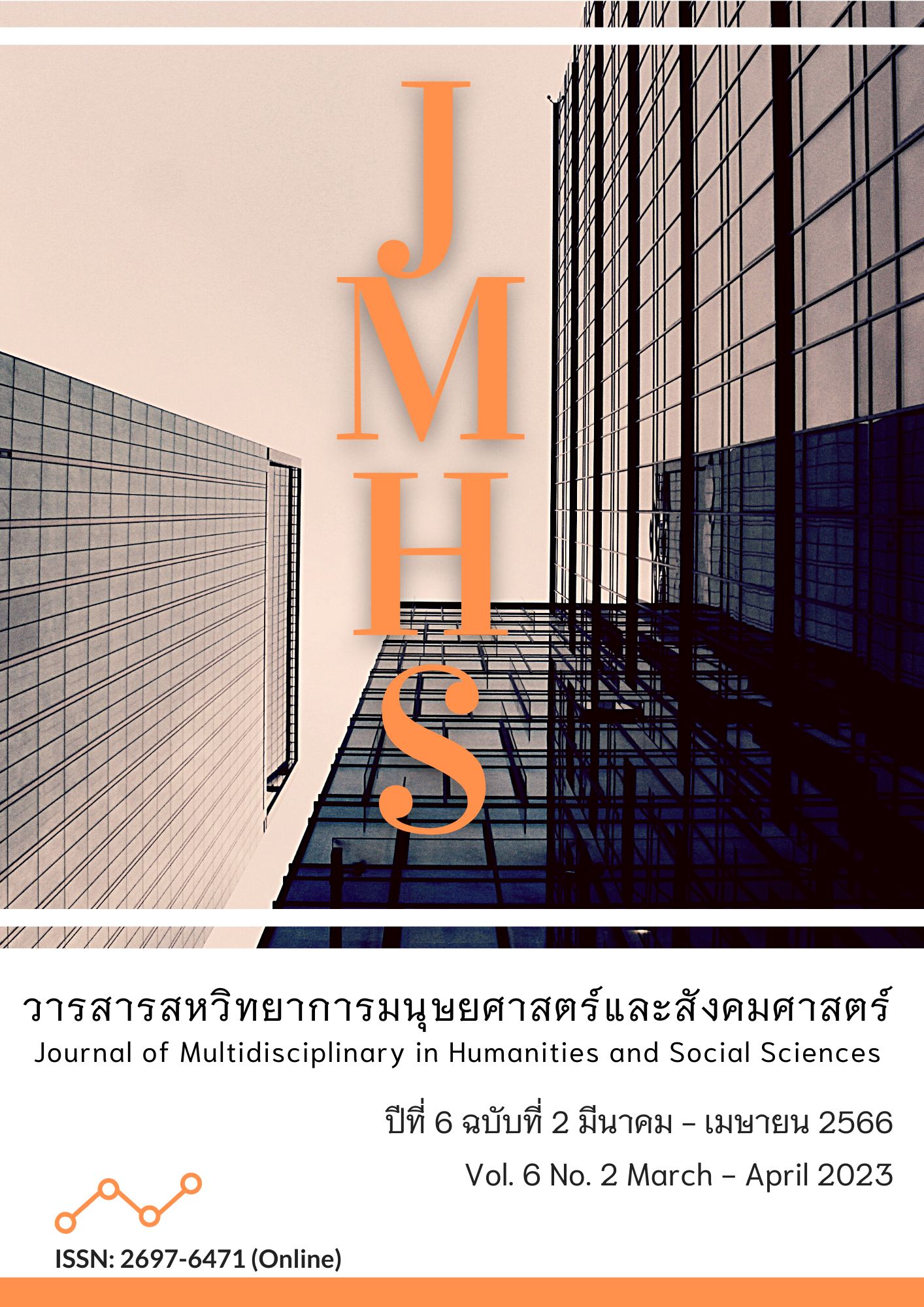Development of Non-Formal Education Program for Preparing Performance Appraiser’s Readiness of Evaluation
Main Article Content
Abstract
The objective of this research was to develop a non-formal education program for preparation performance appraiser's readiness for evaluation. The research model was a developmental research and research framework that comprised Boyle’s institutional program, Gagne’s design for learning, and performance evaluation concepts. There were 2 phases: 1) development of a non-formal education program for preparing performance appraiser's readiness for evaluation. The research tool was a questionnaire for the collection of data from 10 high-ranking officials of 10 government agencies, narrative analysis, and 2) program implementations at the agency that was willing to allow its 5 people to participate. They were selected by purposive sampling. The research tools were a knowledge test, a skills assessment, and a questionnaire. Analyze the data by mean, standard deviation, and narrative.
The research results were found as follows: The results of the development of a non-formal education program for preparing performance appraiser's readiness for evaluation. There were 5 units: introduction: program clarification; module 1: outcomes, key performance indicators, and baseline data; module 2: targets; module 3: evaluation and reporting; and summary: assessment of learning. The results of the implementation of a non-formal education program for preparing performance appraiser's readiness for evaluation were that the performance assessment knowledge’ posttest scores were higher than the pretest scores, the performance assessment skills had an average of 74.33 (a good level), and the appropriateness for using non-formal education programs was at the highest level in all aspects.
Article Details

This work is licensed under a Creative Commons Attribution-NonCommercial-NoDerivatives 4.0 International License.
Views and opinions appearing in the Journal it is the responsibility of the author of the article, and does not constitute the view and responsibility of the editorial team.
References
กุลิสรา จิตรชญาวณิช. (2562). การจัดการเรียนรู้. กรุงเทพฯ: จุฬาลงกรณ์มหาวิทยาลัย.
ทวีสันต์ วิชัยวงษ์ และ สัญญา เคณาภูมิ. (2562). การบริหารราชการแบบมุ่งผลสัมฤทธิ์. Journal of Buddhist Education and Research, 5(2), 34-51.
ธัชพงศ์ เศรษฐบุตร. (2562). การจัดการผลการปฏิบัติงาน. กรุงเทพฯ: ทริปเพิ้ล เอ็ดดูเคชั่น.
บงกช นักเสียง, มานพ ชูนิล, และ ปิ่นกนก วงศ์ปิ่นเพ็ชร์. (2562). พฤติกรรมการประเมินผลการปฏิบัติงานที่มีประสิทธิผลของผู้ประเมินผลการปฏิบัติงานในโรงเรียนสังกัดสำนักงานศึกษาธิการภาค 9. วารสารวิชาการมนุษยศาสตร์และสังคมศาสตร์ มหาวิทยาลัยบูรพา, 27(53), 279-303.
ปิยะชัย จันทรวงศ์ไพศาล. (2554). การบริหารมุ่งผลสัมฤทธิ์. กรุงเทพฯ: บ้านหนังสือโกสินทร์.
สำนักงานคณะกรรมการข้าราชการพลเรือน. (2545). คู่มือการพัฒนาระบบบริหารมุ่งผลสัมฤทธิ์. กรุงเทพฯ: สวัสดิการ สำนักงาน ก.พ.
สำนักงานคณะกรรมการพัฒนาระบบราชการ. (2563). คู่มือการบริหารความพร้อมต่อสภาวะวิกฤต. สืบค้นเมื่อ 25 กันยายน 2565, จาก https://www.opdc.go.th/content/viewbook/NjQxMHx8MXx8dGh8fE9aQzZO#book/
สำนักงานคณะกรรมการพัฒนาระบบราชการ. (2564). การประชุมชี้แจงกรอบแนวทางการประเมินส่วนราชการตามมาตรการปรับปรุงประสิทธิภาพในการปฏิบัติราชการของส่วนราชการ ประจำปีงบประมาณ พ.ศ. 2565. สืบค้นเมื่อ 6 พฤศจิกายน 2564, จาก https://www.opdc.go.th/content/NzAyMA
สำราญ มีแจ้ง และ สมหวัง พิธิยานุวัฒน์. (2558). การประเมินผลการปฏิบัติงานแนวใหม่: ทฤษฎีและปฏิบัติ. กรุงเทพฯ: จุฬาลงกรณ์มหาวิทยาลัย.
สุขสวรรค์ชัย บุษบา, สุนีย์ เลี่ยวเพ็ญวงษ์ และ อมรวรรณ รังกูล. (2557). แนวทางการพัฒนาระบบการประเมินผลการปฏิบัติงานของพนักงาน สำนักงานใหญ่ รัฐวิสาหกิจไฟฟ้าลาว. วารสารวิทยาลัยบัณฑิตศึกษาการจัดการ มข., 7(2), 28-42.
อลงกรณ์ มีสุทธา และ สมิต สัชณุกร. (2553). การประเมินผลการปฏิบัติงาน. กรุงเทพฯ: สมาคมส่งเสริมเทคโนโลยี (ไทย-ญี่ปุ่น).
อาชัญญา รัตนอุบล. (2559). การเรียนรู้ของผู้ใหญ่และผู้สูงอายุในสังคมไทย. กรุงเทพฯ: จุฬาลงกรณ์มหาวิทยาลัย.
Boyle, P.G. (1981). Planning Better Programs. New York: McGraw-Hill.
Caffarella, R.S. (2002). Planning Programs for Adult Learners. New York: Jossey-Bass.
Gagne, R.M. (1985). The Conditions of Learning and Theory of Instruction (4th ed.). New York: Holt, Rinehart and Winston.
Khadjooi, K., Rostami, K., & Ishaq, S. (2011). How to use Gagne's Model of Instructional Design in Teaching Psychomotor Skills. Gastroenterology and Hepatology from Bed to Bench, 4(3), 116-119.
Kusek, J.Z., & Rist, R.C. (2004). Ten Steps to a Results-Based Monitoring and Evaluation System. Washington, D.C.: The World Bank.
Worokwu, C. (2022). Effect of Gagne’s Learning Hierarchy on Chemistry Student Achievement in Senior Secondary School. IRE Journals, 5(9), 609-618.


